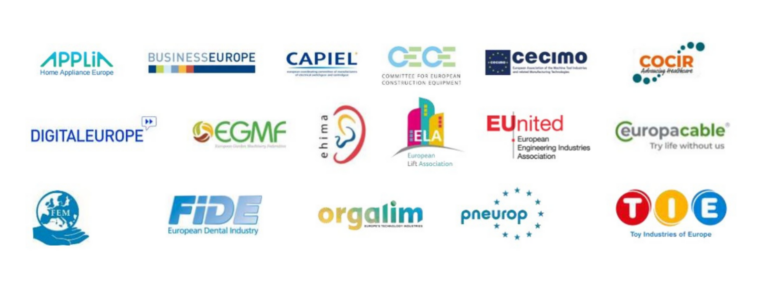FEM, alongside 16 fellow industry associations, welcome the European Commission’s initiative for a European standardisation strategy that aims to support the digital transformation and the green transition. Standards are at the core of the EU Single Market and the New Legislative Framework for products, and key to the EU´s economic integration that is imperative in today’s geopolitical context.
We support the ambition to take a more proactive approach towards strategy setting for standards. The proposed actions should consolidate the strengths of the existing system and consequently preserve the inclusive and successful market-driven nature of the standardisation processes. Based on the observations of industry leaders and experts active in standardisation, we urge policy-makers to consider the following elements when implementing the strategy and remain available for a constructive dialogue on how the EU can lead in standardisation.
Summary of recommendations:
We acknowledge the European Commission’s interest in good governance principles in standardisation bodies, their consideration of the geopolitics of standards, and the appreciation of the catalyst standards play in our relations with key international partners.
We underline the necessity to unconditionally maintain standards development processes that are market-driven and inclusive, with stakeholders in the driving seat. The development and harmonisation of standards should not be limited to areas of political priority.
Building the EU´s resilience and a model for open strategic autonomy should not mean that the EU resorts to isolationism, instead the EU should further reinforce its ties in standardisation with key trading partners, and should further promote the participation of European stakeholders in international standardisation activities.
We urge the European Commission to restore the efficient mechanisms for the development, assessment, and timely revision of relevant, state-of the-art harmonised European standards that respond to market needs and support the application of EU law.
The use of common or technical specifications, as an alternative to harmonised European standards, should only be possible in exceptional cases. Horizontal guidelines should set strict and exceptional conditions, including a proper ex-ante impact assessment and the early involvement, consultation, and direct engagement of the industry.
The future EU High-Level Forum should be used as a platform to directly involve all stakeholders in standardisation, especially when setting agendas and developing actions.


